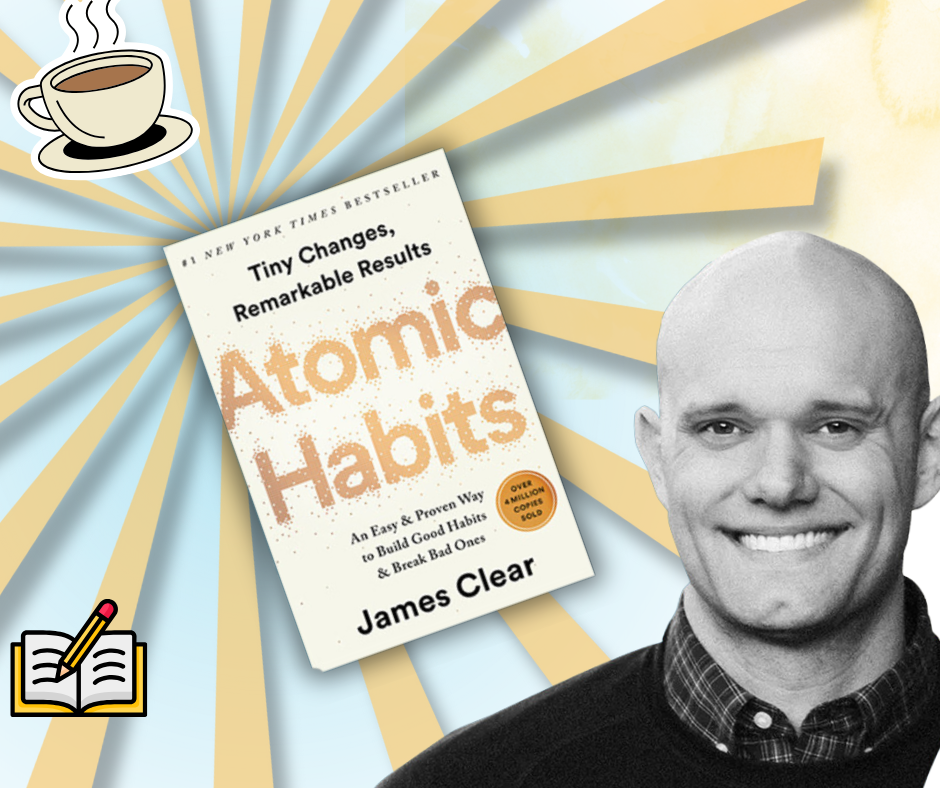
James Clear on How Atomic Habits Can Help Youth Athletes Succeed
James Clear, New York Times best-selling author of Atomic Habits, has spent years studying how small, consistent actions can lead to massive change. In a conversation on my podcast, he shared how his research can relate to youth sports. He challenges athletes (and parents) to think differently about how they train and practice. I pulled the key takeaways from our talk, and his insights will change how you think about training and long-term success in sports.
MY DAUGHTER QUIT YOUTH SPORTS, AND THIS IS WHAT I WANT SPORTS PARENTS TO KNOW
The Power of Deliberate Practice
Many people believe that simply putting in the hours leads to expertise. Malcolm Gladwell popularized the “10,000 Hour Rule,” which suggests that investing enough time in a skill leads to mastery. But Clear, referencing the work of researcher Anders Ericsson, explains that it’s not just about time—it’s about how you practice.
Deliberate practice is purposeful, focused, and involves immediate feedback. It means:
- Identifying specific areas to improve
- Practicing with full concentration
- Measuring progress and adjusting accordingly
Example: The Two Free-Throw Shooters
Clear gives a great example of two basketball players practicing free throws for an hour. One casually shoots, chatting with friends, not paying attention to makes or misses. The other tracks every shot, analyzes what’s working, and makes adjustments. Both put in an hour, but only one gets significantly better.
We can help kids shift from mindless repetition to intentional practice by encouraging them to track progress, analyze mistakes, and make thoughtful adjustments.
The Role of Feedback: The Key to Faster Learning
THE ONE THING HOLDING YOUR ATHLETE BACK AND IT’S NOT WHAT YOU THINK
Clear emphasizes that learning is a feedback loop. Young athletes need clear, immediate feedback to know what’s working and what’s not. He compares it to video games—players get instant feedback through scores, sounds, and visuals, making the experience engaging and addictive.
This means:
- Helping kids track their performance (e.g., counting makes/misses, recording times, or logging key stats)
- Encouraging them to reflect after games or practice on what went well and what can improve
- Praising effort and progress, not just outcomes
The best way to improve isn’t just working hard—it’s working smart with direct, consistent feedback.
Why Matching the Right Sport to the Right Kid Matters
One of Clear’s most fascinating points is that success is often a matching problem—a combination of natural ability and dedicated effort. He uses the example of two world-class athletes: Olympic swimmer Michael Phelps and elite Moroccan runner Hicham El Guerrouj.
Even though Phelps and El Guerrouj both reached the pinnacle of their respective sports, their bodies are built completely differently. Phelps, at 6’4”, has a long torso and relatively short legs, which makes him naturally suited for swimming. El Guerrouj, who is much shorter at 5’9”, has long legs and a shorter torso, making him an ideal middle-distance runner. If they had swapped sports, their natural builds would have put them at a disadvantage.
The takeaway? Success isn’t just about effort—it’s also about choosing the right path that aligns with an athlete’s natural strengths. Kids in a sport where they feel progress and success are more likely to put in the effort required for excellence.
The Goldilocks Rule: Staying Just Outside the Comfort Zone
Kids naturally want to practice what’s easy and fun—but growth comes from stretching just beyond their comfort zone. Clear calls this the Goldilocks Rule: finding challenges that are neither too easy (boring) nor too hard (discouraging), but just right.
For parents, this means:
- Encouraging kids to push themselves in small ways every day
- Framing challenges as fun and rewarding, not frustrating
- Celebrating effort, not just achievements
If practice feels rewarding, kids will want to keep improving. If it feels overwhelming or pointless, they’ll quit.
Atomic Habits and 1% Better Every Day
Clear’s book, Atomic Habits, is built around a simple but powerful idea: small improvements, repeated consistently, lead to massive success. Instead of overhauling everything at once, he encourages focusing on getting just 1% better each day. Over time, these small wins compound into dramatic improvement.
For parents, this could mean:
- Focus on small, daily gains – Encourage tiny, repeatable actions like five extra shots, one extra sprint, or a little more effort today than yesterday.
- Build systems, not just goals – Success comes from consistent, automatic habits like stretching before bed, reviewing game footage for 5 minutes, or sticking to a pre-game routine.
- Make habits easy to start – Reduce friction by keeping a ball near the door, setting out workout gear the night before, or attaching new habits to existing routines.
The best athletes aren’t just those who work the hardest—they’re the ones who build sustainable habits that fuel long-term success.
Final Thoughts: How Parents Can Support Their Young Athletes
James Clear’s insights apply to sports, school, and life. Helping kids develop deliberate practice, seek useful feedback, match their skills to the right opportunities, and push their comfort zones can transform not just their performance but their mindset.
If there’s one lesson for sports parents, it’s this: The goal isn’t to create great athletes—it’s to help kids develop the habits that will make them great at whatever they pursue.
For more from James Clear, check out his book Atomic Habits or visit JamesClear.com for more insights on habits, performance, and success. Be sure to subscribe to his newsletter; it’s probably my favorite newsletter of all time.











